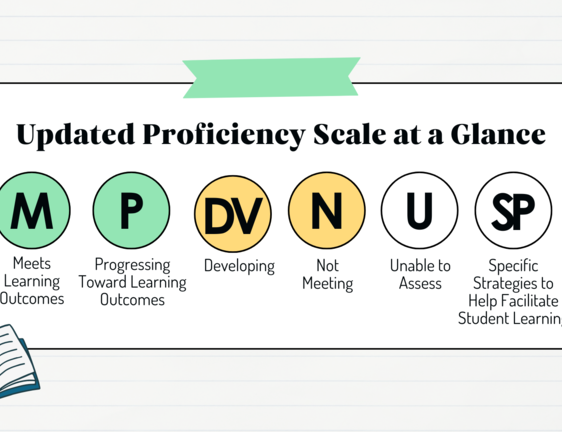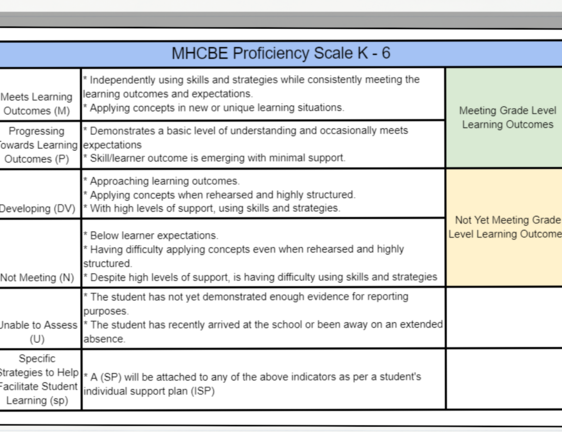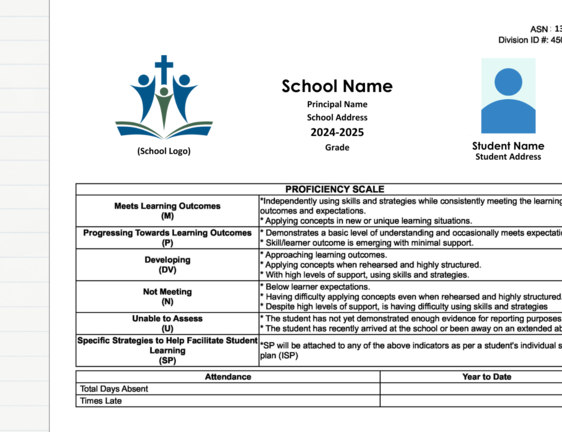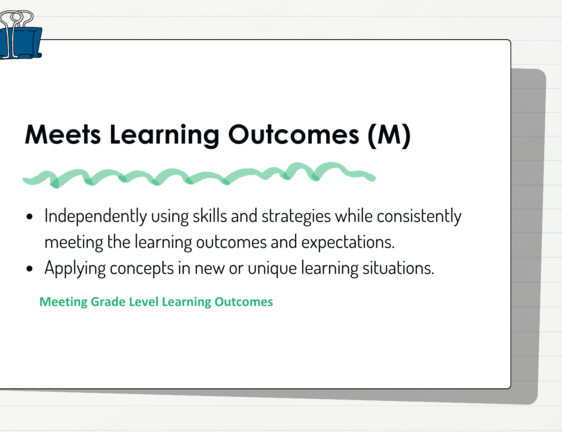Medicine Hat Catholic Board of Education outlines our guidelines regarding student evaluation through our Administrative Procedure 360.
What is Assessment?
Assessment is the process of gathering information about what a student knows, understands, and can do, in relation to the learning outcomes. The learning outcomes are identified by Alberta Education.
Types of Assessment
|
Formative Assessment |
provides information about a student’s progress and direction for steps in learning; teaching and learning are indistinguishable from assessment |
|
Summative Assessment |
provides information to make judgments about student achievement at the end of a period of instruction; achievement data are usually compiled into a single number, score, mark or comment |
|
Assessment for Learning |
the collection and use of assessment information by teachers to adjust teaching for the purpose of improving students’ learning. This process involves the ongoing exchange of information among the teacher and students. This is a component of formative assessment. |
|
Assessment as Learning |
the collection and use of assessment information by students to learn about their learning processes in order to plan, regulate, and reflect on their own learning. |
|
Assessment of Learning |
the collection and use of assessment information by teachers to make judgments about students’ achievement at key points during and at the end of a cycle of instruction for the purpose of grading and reporting. This is also known as summative assessment. |
Reporting Practices
Medicine Hat Catholic Board of Education believes that the following guidelines shall form the basis for reporting student progress:
- Our reporting must provide feedback to stakeholders on all elements of learning. Reporting may be in the form of, but not limited to, report cards, online progress reports, portfolios, interviews and student-led conferences. Academic achievement shall be reported separately from personal growth and work habits.
- Students receiving adapted programming or modified programming shall have that information reflected within the reporting.
- The symbolic representation of student learning relative to curriculum learning outcomes is less important than the process by which it was determined. Standards or indicators of success will be utilized as a means for outcomes-based reporting in Kindergarten to grade 6. Percentages and letter grades are acceptable reporting methods in grades 7 to 12 if the process by which they were determined was outcomes-based reporting. All methods of reporting are intended to display student progress toward mastery.
- As per Alberta Education directives, preliminary Provincial Achievement Test results for grades 6 and 9 must be communicated to parents/guardians and students.
- Report card comments give the student and family a picture of what the student knows and can do, areas for growth, and next steps in learning. Three criteria have been developed for report card comments to support the development of coherent system practices. These criteria apply to report card comments for all students, from Kindergarten to Grade 12. Comments for all grades (K-12) shall:
- focus on what students have learned;
- describe significant strengths; and
- identify next steps for improvement






















